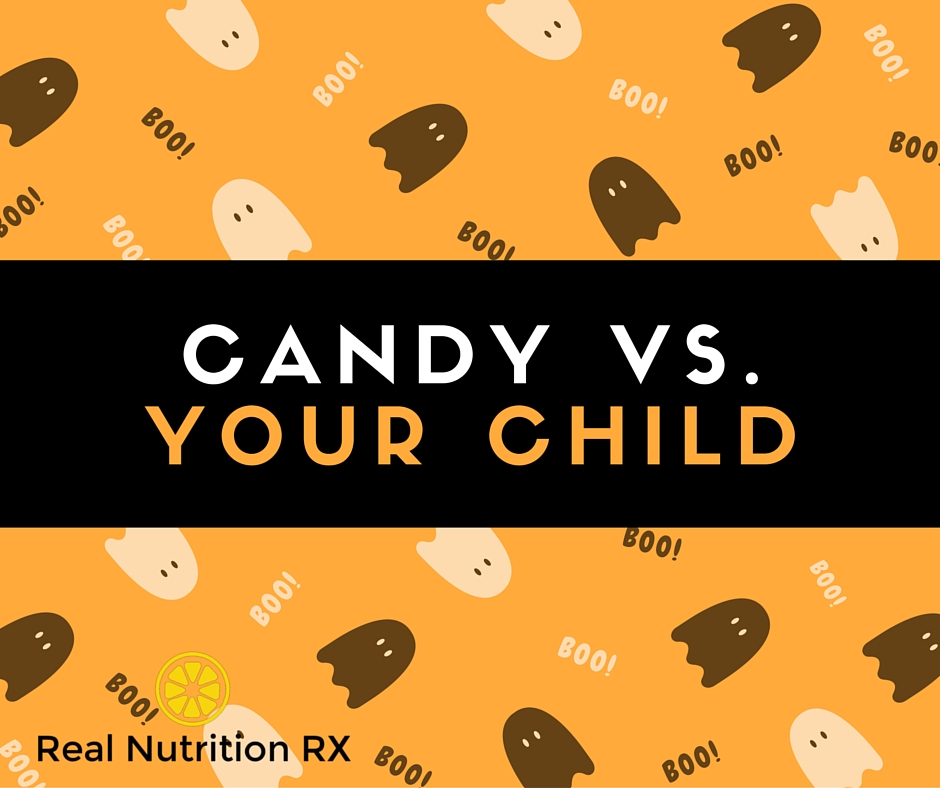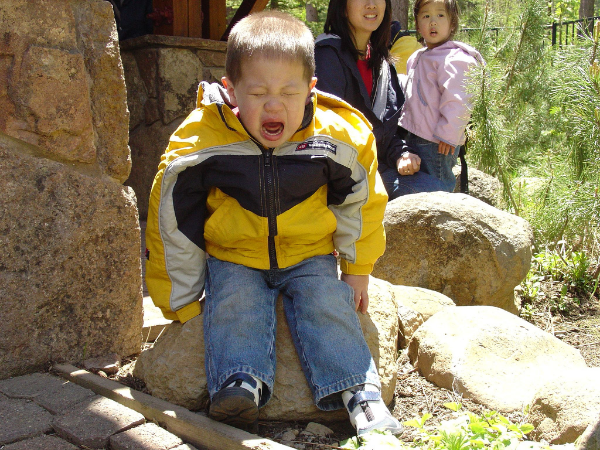
This is your child’s brain:

This is your child’s brain on candy:

And yet….we do this every year on Halloween. Actually, we might even do it every day for the week of Halloween when you count all the school parties and fall festivals. What’s causing this phenomenon, and what counter-attack can you launch?
Your Kid and Sugar – Best Frenemies
Candy is primarily a concentrated source of sugar – glucose and fructose. Once it enters your child’s mouth, a primal instinct takes over. The brain releases a feel-good neurotransmitter called serotonin. Serotonin makes people feel great – happy and calm (yes, I said that – about kids and candy). Serotonin is tightly linked to mood. In fact, a deficit of serotonin is a known cause of depression.
Anyway, back to your kid. Life is good – now that their neurons are swimming in feel-good chemicals your kid is super happy. Until they’re not. Next thing you know, they’re screaming and throwing a fit – they don’t like the color of their shoes, you won’t let them eat all the candy right now, they want to rip off their costume, whatever.
What happened? We were having so much fun trick or treating!
Well, the unfortunate follow-on to the serotonin high is that it comes back down. Did I mention that this is a primal response? We are wired to seek energy-rich foods. Back when food was scarce, this really helped out our species. When serotonin goes away, our brain looks for a way to get it boosted again – with more energy-rich foods – like candy. It looks like this:

Meanwhile, your child’s pancreas. It noticed that glucose from candy got absorbed into the bloodstream, causing a large increase in your child’s blood sugar – and fueling their tantrums. The pancreas responds by releasing insulin. Insulin facilitates the absorption of blood sugar into the body’s cells. If you’re in luck, your child may then transform from werewolf back into human child. Unfortunately, the more common result is that your child now feels….like trash – tired, lethargic, and “over it” with this “trick or treating”. You can carry them home now.

Kids Will Be Kids….
None of this means that your kid shouldn’t be allowed to eat Halloween candy. Let me just note, though, that the habit of seeking serotonin-boosting foods is pretty addictive. One of the leading causes of obesity is believed to be the brain’s addiction to the serotonin that comes from energy-dense foods. Halloween is a special occasion, but you may not want to allow the “roller-coaster of candy emotions” to be a regular occurrence for your kids.
In fact, high added sugar intake has been linked to the following effects in children (a):
- Increased LDL cholesterol
- Increased triglyceriedes
- Increased diastolic blood pressure
- Dental carries/cavities
- Increased fasting blood sugar and insulin levels
Fortunately, there is hope. A recent study found that when obese children reduced added sugars from 27% to less than 10% of calories, they experienced remarkable reductions in all of these health markers – in only 10 days (a).
So, don’t feel like you need to keep your kids candy-free on Halloween – but it’s probably not a good idea to let them feast on their stash until Thanksgiving. Good luck Trick or Treating!
